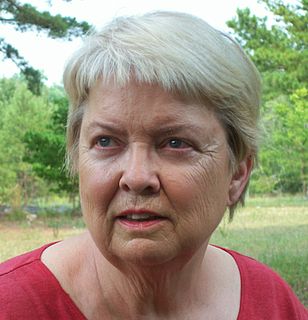A Quote by Tana French
I'm still very much in the apprentice stage of writing. I read somewhere that you need to write a million words before you know what you're doing - so I'm headed that way, but I'm nowhere near there.
Related Quotes
I still have a struggle reading (dyslexia, fh) and so I don't read much.. ..Probably the only reason I'm painter is because I couldn't read yet I love to write, but when I write I know what I'm writing, but when I'm reading I can't see it, because it goes from all sides of the page at once. But that's very good for printmaking.
I think all writing is about writing. All writing is a way of going out and exploring the world, of examining the way we live, and therefore any words you put down on the page about life will, at some level, also be words about words. It's still amazing, though, how many poems can be read as being analogous to the act of writing a poem. "Go to hell, go into detail, go for the throat" is certainly about writing, but it's also hopefully about a way of living.
After I quit being a lawyer in '95, I was having a lot of trouble writing. Then I read somewhere that Willa Cather read a chapter of the Bible every day before she started work. I thought, 'Okay, I'll try it.' Before each writing session, I started to read the Bible like a writer, thinking about language, character, and themes.
I understood at once, I am not living, but actively dying. I am smoking, living unhealthily. I’m shutting down. I need to go the other way, inside. And it was so clear to me what I was doing. It was suddenly perfectly clear. I understood, I need to write. Live here, in my words, and my head. I need to go inside, that’s all. No big, complicated, difficult thing. I just need to go in reverse. And not worry about what to write about, but just write. Or, if I’m going to worry about what to write, then do this worrying on paper, so at least I’m writing and will have a record of the anxiety.
I came to writing mysteries through poetry and still think that a well-constructed mystery is very much like a well-constructed sonnet. Both are artificial forms. Both start off in one direction and then, with a twist of the concluding couplet/surprising ending, both reveal that they were headed somewhere different all the time.






































